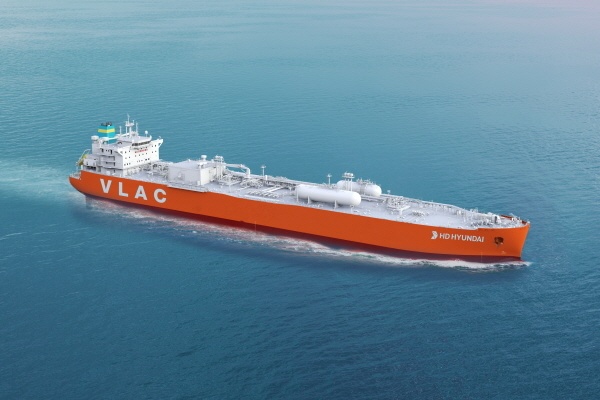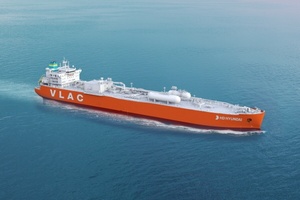
The Korean government and three major Korean shipbuilding companies – HD Korea Ship Building & Offshore Engineering (KSOE), Samsung Heavy Industries, and Hanwha Ocean – will invest 9 trillion won to secure future ultra-wide gap technologies for the Korean shipbuilding industry.
The Ministry of Trade, Industry and Energy (MOTIE) announced on March 5 that it has launched the Next Generation Korea Shipbuilding Initiative, a platform for cooperation between the government, the public sector and the private sector, in order to discuss the transformation direction of the Korean shipbuilding industry and to review the current exports and strategies in the Korean shipbuilding industry.
At the first meeting of the Korea Next Generation Shipbuilding Initiative, the Korean government, the three major Korean shipbuilders and the Korea Naval Shipbuilding Association signed a joint response agreement to secure the broad technological competitiveness of the Korean shipbuilding industry. Through the agreement, the Korean government and the three Korean shipbuilders agreed to invest 9 trillion won over the next five years to secure ultra-wide gap technologies in shipbuilding.
In order to secure next generation technologies from a medium to long-term perspective, the public and private sectors will jointly develop a roadmap for the very wide R&D gap in the shipbuilding industry in the first half of this year.
Accordingly, it will develop the world's first liquefied hydrogen tanker by 2030 and set international standards for autonomous sailing vessels.
The government will also establish a system to forecast supply and demand for human resources. 2,000 Korean shipbuilding professionals and production workers will be trained each year through the Human Resources Development Center for Future Innovation and a training program for job seekers.
In this regard, the three shipbuilding companies will pilot the Overseas Shipbuilding Human Resources Cooperation Center in the first half of this year to secure a system to train foreign workers locally and bring them to Korea.
The Korean government also decided to establish investment offices and field offices in the Korea Maritime and Shipbuilding Association and five regions across the country after reviewing strategies to increase the amount of orders and exports with the Korean shipbuilding industry at the meeting.
“The challenges facing the Korean shipbuilding industry must be overcome through collective action between the public and private sectors beyond the level of individual companies,” said Korean Minister of Trade, Industry and Energy Ahn Deok-gyun. “The roles of the Korean shipbuilding industry are vital to help Korean companies achieve exports worth US$700 billion this year.”

